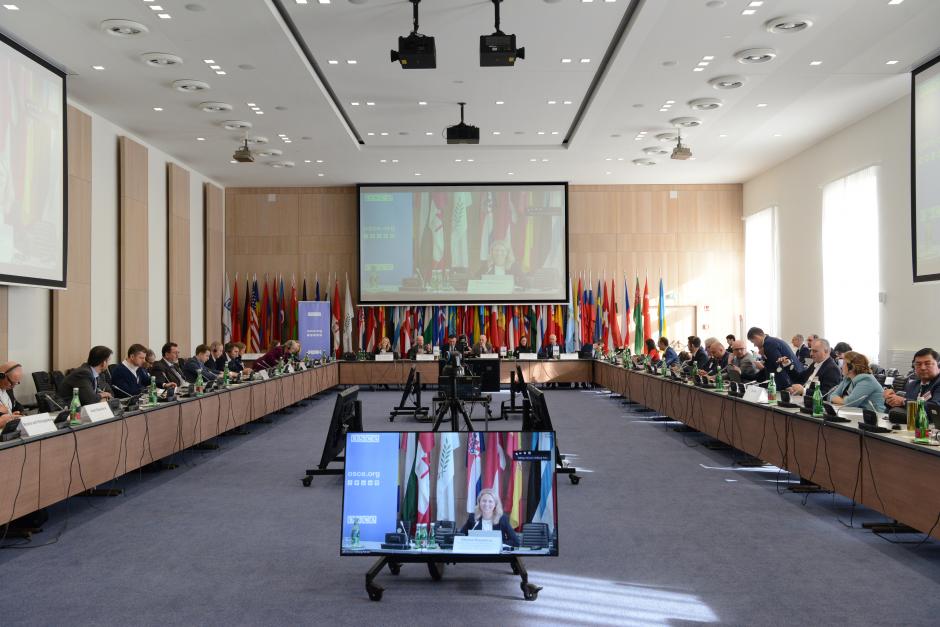The Organization for Security and Cooperation in Europe (OSCE) Transnational Threats Department and United Nations Office of Counter-Terrorism (UNOCT) delivered a passenger data exchange seminar as part of an informal working group meeting in Vienna, Austria on November 8-10, 2023.
The Eastern European Informal Working Group on Passenger Data is a part of the UNOCT Countering Terrorist Travel Program global initiative. It serves as a forum for technical exchange on methodologies in travelers’ data collection, technologies development, new applications of passenger data frameworks and exploring security analyses across different modes of travel. It currently consists of 18 member states: Albania, Armenia, Azerbaijan, Belarus, Bosnia and Herzegovina, Israel, Georgia, Kazakhstan, Kyrgyzstan, Moldova, Montenegro, Mongolia, North Macedonia, Tajikistan, Turkmenistan, Serbia, Ukraine and Uzbekistan.
“In an era marked by global terrorism threats and ever-increasing security challenges, the exchange of advance passenger information between airlines and competent state authorities has taken center stage in bolstering national security, aviation safety and the protection of state borders. This collaborative endeavor serves as a robust defense mechanism against the movement of foreign terrorist fighters and other potential security risks,” said Marijan Pop-Angelov, representative of the 2023 OSCE Chairpersonship.
The event gathered almost 100 passenger data experts both in person and online to put into practice the United Nations Security Council resolution 2396 and identify needs for technical assistance. The resolution aims to prevent the return of foreign terrorist fighters and, to do so, it mandates strengthening border security by establishing passenger data exchange systems, bilateral and multilateral information-sharing as well as collecting advance passenger information (API) and passenger name record (PNR) data.
The experts emphasized the need to establish human rights-focused passenger data legislation as well as technical and financial support in applying it. They also highlighted the benefits of engaging with airlines from the early stage and explored how to analyze and profile passenger data. IT service providers presented their API/PNR analysis systems.

